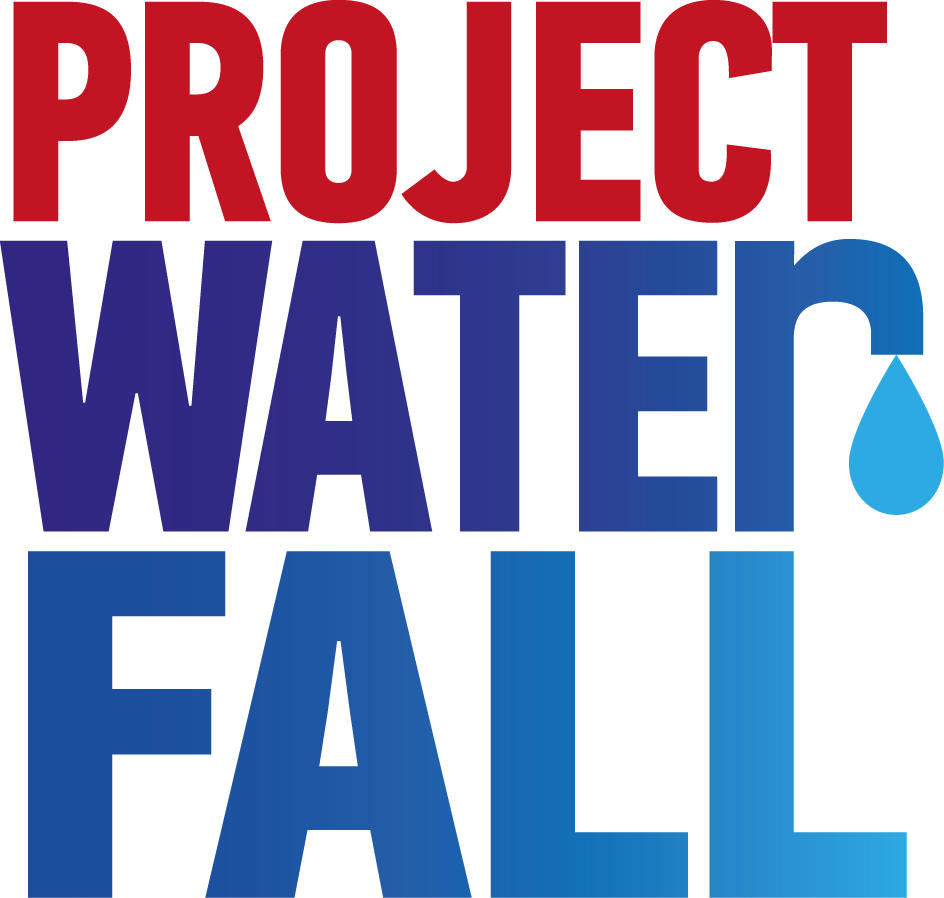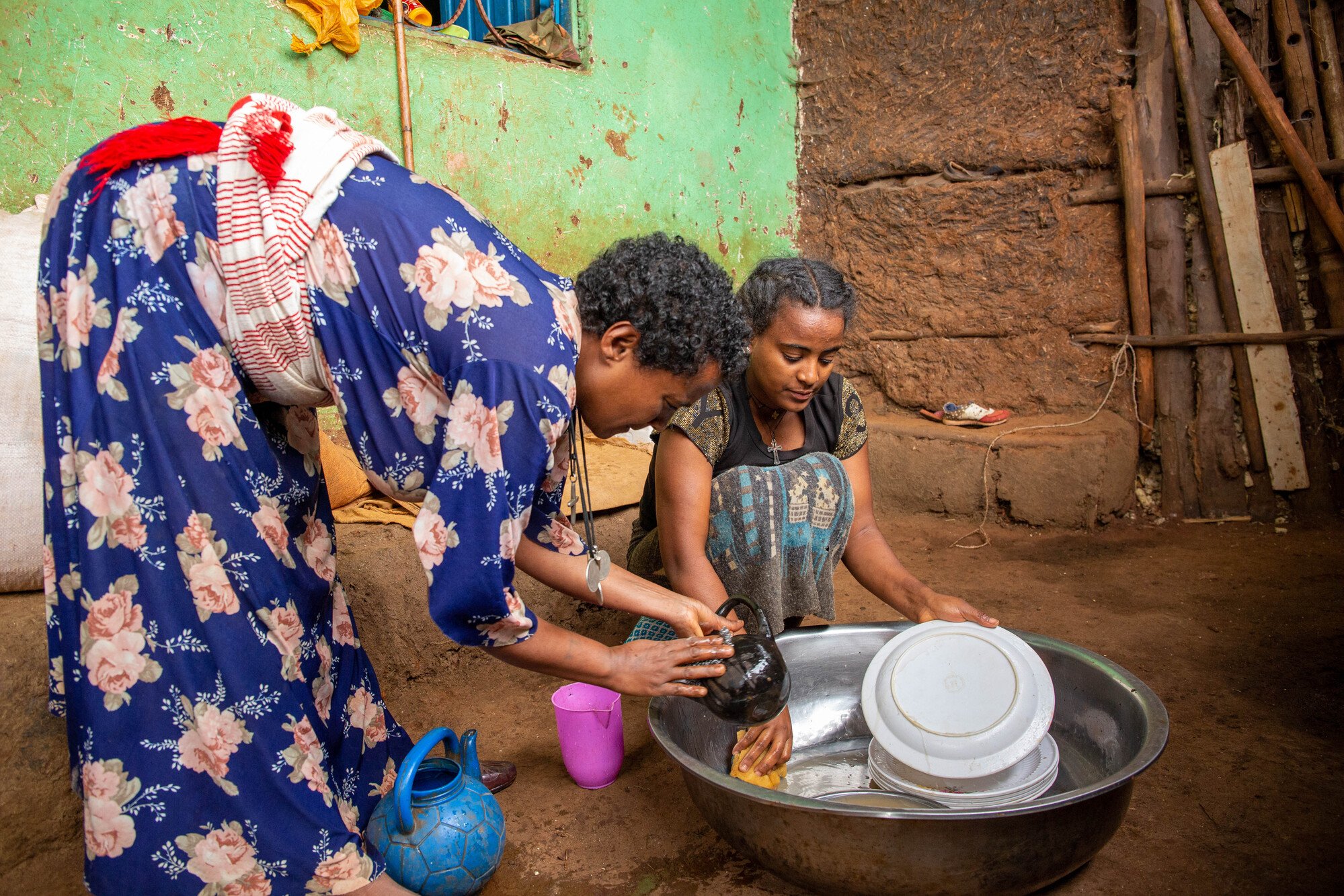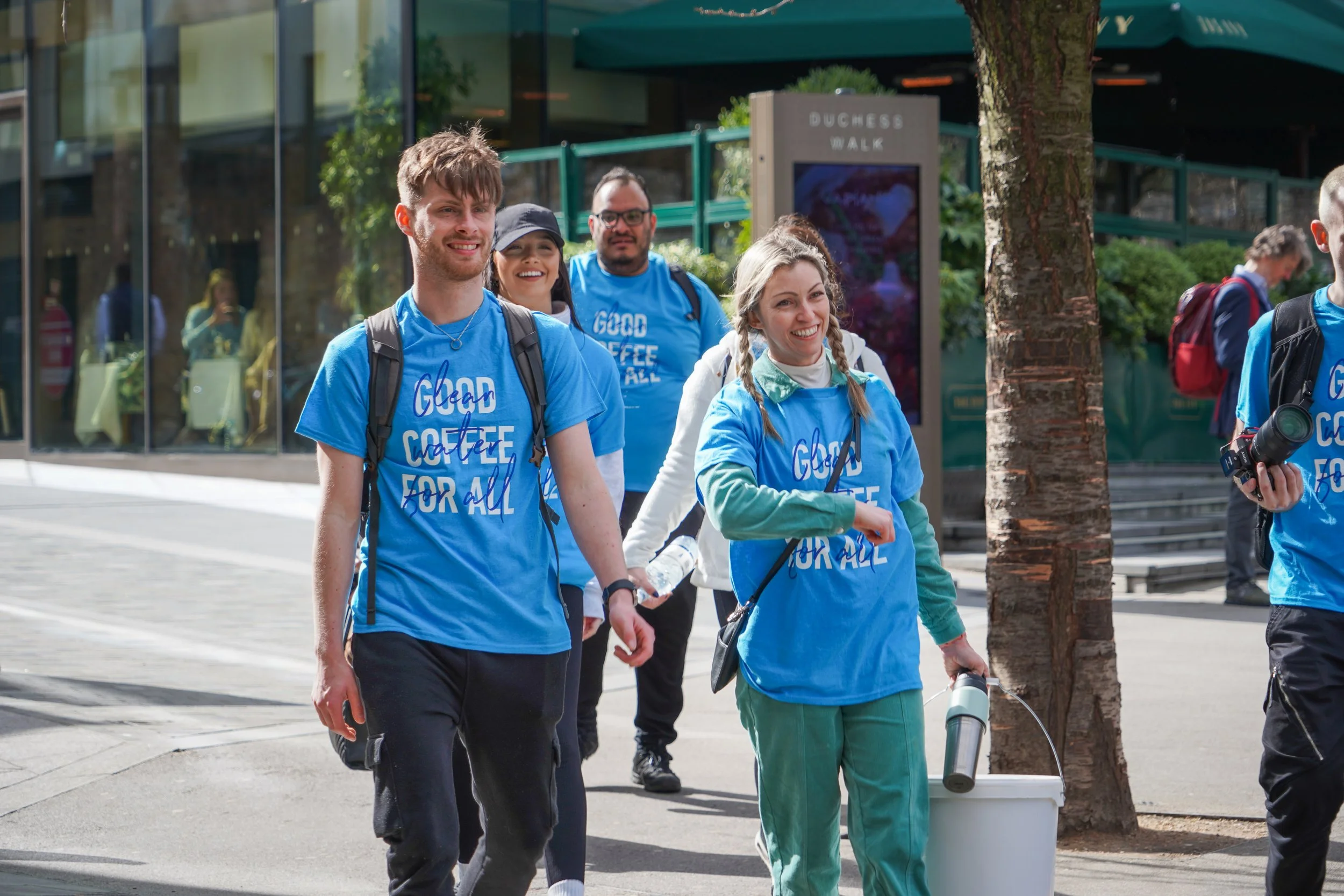‘Water for Peace’ is the theme for World Water Day 2024, and it's imperative to recognise the pivotal role water plays in shaping peace and conflict worldwide. In a world where over 3 billion people depend on water that crosses national borders, the need for cooperation and equitable access has never been more pressing. Despite this, according to the UN, only 24 countries have cooperation agreements to share water. Project Waterfall has supported numerous projects in coffee growing communities in East Africa which are reliant on such agreements that safeguard water supplies, facilitating them to continue farming coffee.
Photo: WaterAid
Effective water resource management is crucial to enable communities to thrive economically, socially and environmentally. This is particularly important in coffee growing communities which are often in remote, rural areas where access to clean water and sanitation is a daily challenge.
Coffee and water are intrinsically linked from crop to cup. It is estimated that it takes 140 litres of water to grow, wash, process, and transport enough coffee beans for an average cup of coffee. That's more than wheat, sugar, tea and barley. When we enjoy a cup of coffee from a coffee shop, the water used in the brewing process has gone through an expensive filtration system to create the perfect water profile to enhance the flavours of the coffee. Meanwhile, the communities that grow our coffee don’t have access to clean drinking water. It’s vital that the coffee industry invests in sustainable water, sanitation and hygiene projects to address this disparity.
Photo: WaterAid
The nexus between water, conflict and peace is profound, water scarcity can escalate tensions between nations, but cooperation on water can foster relationships and help communities become more resilient. Sustainable Development Goal (SDG) 6 declares the importance of achieving "clean water and sanitation for all". Project Waterfall’s work focuses on SDG 6 as access to clean water is fundamental to achieving all the other Sustainable Development Goals. It is a linchpin for public health, economic productivity, environmental integrity, and societal harmony. By embracing water as a fundamental human right and essential component of every aspect of life, we can pave the way for a more stable and prosperous future for the communities we work in.
As climate change intensifies and populations grow, particularly in coffee growing communities, the pressure on water resources will increase alongside the potential for conflict. To maintain peace in water scarcity regions, we must invest in sustainable water management systems to provide a long-term solution. Project Waterfall’s next flagship project in Rwanda is focussing on just that. Despite the impressive recovery from the civil war, Rwanda remains one of the poorest countries in the world with a growing poverty gap. The project looks to work alongside the government to meet SDG 6 and focus on two remote communities to achieve access to clean water and sanitation in those regions.
Photo: WaterAid
As nations grapple with the complexities of climate change, mass migration, and political unrest, prioritising water cooperation is paramount for ensuring a more stable and sustainable world. By continuing our work to support coffee growing communities, we endeavour to not only enable access to clean water but help maintain peace in those regions by alleviating pressures on water supplies. Highlighting ‘Water for Peace’ this World Water Day reminds governments, civil society and individuals of their roles in creating a more harmonious and prosperous world in which the human right of water is accessible for all.
This year Project Waterfall will be hosting their second World Water Day campaign. Hundreds of coffee professionals will be showing their support by taking part in The Big Water Walk along the Thames. We also have businesses and schools across the UK organising fundraisers and events to raise awareness of the water crisis. If you’d like to take part next year, get in touch here.





